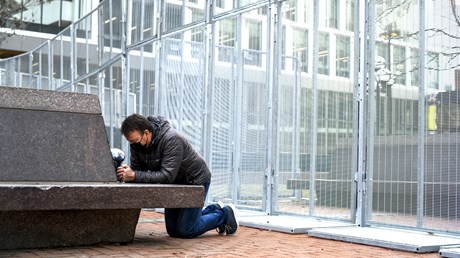After George Floyd's death, white and Black congregations partnered to serve the city.

Buffalo Evangelical Free Church wanted to help. About an hour’s drive from downtown Minneapolis, the majority white church was deeply upset by the news of George Floyd’s death and shocked by the videos on social media.
As protests swept the city, the Buffalo, Minnesota, congregation started to ask what it could do. Pastor Greg Braly was eager too, but cautious.
“I think one of the mistakes that Anglo churches can make is to walk in with the white savior hat on and walk in thinking we know what’s going on,” Braly said. “We don’t.”
Braly asked the organizers coordinating food and other supplies for those impacted by the protests and police crackdowns for advice and got a very clear response: “You don’t know our culture. You don’t know our community. You don’t know our pain.”
Instead of showing up with a plan, the church needed to start with a relationship. Braly reached out to another Evangelical Free congregation and connected with the majority Black Riverside Evangelical Free Church, located between the airport and the VA Medical Center.
Braly became friends with Riverside pastor Prince Lee and then found ways for the congregations to connect. Lee spoke at Buffalo, the churches worshiped together, and the white suburban congregation supported the urban Black church with material and financial resources as it ministered in the city.
“We view the Riverside church as a partner and sister church,” Braly said. “They are the experts.”
Similar partnerships have formed across the Twin Cities. White evangelical churches have looked for ways to respond and serve while being more aware than they have in the past that there are better and ...
from Christianity Today Magazine
via


.gif)

.gif)
.gif)
